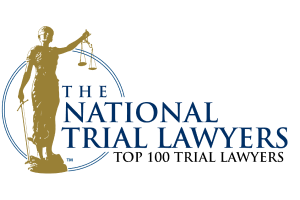Falls on Public Property
Falls on public property, like sidewalks and roadways, can be the result of a defect or poor maintenance, which should have been remedied by the government agency in charge of the property. If a known hazardous condition exists on public property, causing you to fall and sustain an injury, it would seem apparent that the governmental entity responsible for keeping the property safe should be held liable for your injuries and damages. However, bringing a personal injury claim against the government requires strict adherence to many federal and state regulations.
The Federal Tort Claims Act
The Federal Tort Claims Act (FTCA) allows individuals to bring claims against the federal government for personal injury, wrongful death, and property damage caused by the negligence of a federal employee acting—or failing to act—within the scope of his or her employment. (Prior to enactment of the FTCA, you could not sue the federal government for personal injuries unless an act of Congress permitted it.) Under the FTCA, the only type of relief available to injury victims is money damages for a specific amount.
The FTCA also lays out specific procedures for pursuing a claim against the federal government. First, you must put the government on notice that you plan to seek compensation for personal injuries. You do so by submitting a claim in writing within two years of believing you have a cause of action. Submitting a written claim is mandatory, and failing to do so will most likely result in a dismissal of your premises liability lawsuit.
Georgia Laws Covering Falls on Public Property
Georgia has additional laws at the state level, known as the Georgia Tort Claims Act, that govern premises liability claims arising from falls on public property. The time requirement under Georgia law are even stricter than those of the federal requirements. Under Georgia law, you must provide notice of a claim against the state within twelve months from the date of the accident. Failure to comply may result in your claim being dismissed. The notice requirements for claims against municipalities, i.e. towns and cities, are even stricter. For those claims, notice to the municipality must be given within six months of your accident.
The written claim of notice must state the time, place, and extent of your injury, as nearly as practicable, and the negligence that caused the injury. “As nearly as practicable” means that you must make a good faith effort to be accurate in stating these details, but if some information is unknown or estimated, it is generally sufficient as long as you are as thorough as possible.
Contact the Legal Team at KWF after a Fall on Public Property
With these strict time limitations and written requirements, it’s important to talk to an experienced Georgia premises liability lawyer as soon as possible after falling on public property. In the Atlanta area, call Katz Personal Injury Lawyers at 404-460-0101. During a free initial consultation, we can help you determine if you have a claim against the government to cover the cost of your injuries.







